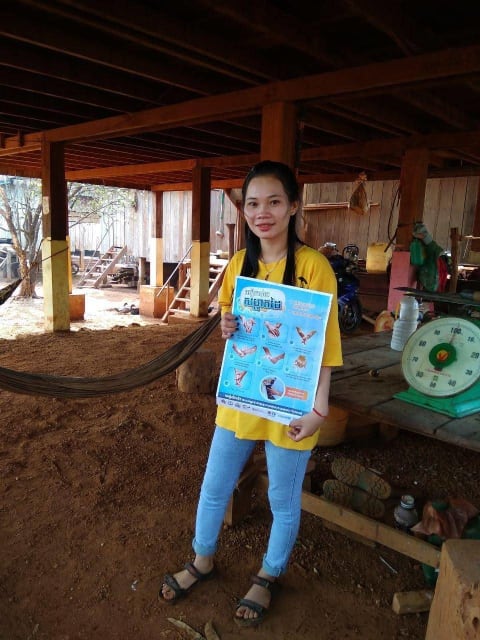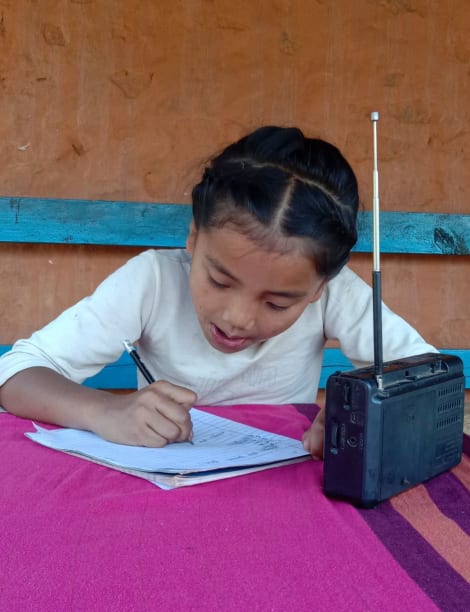One in six children worldwide do not have the chance to attend school and in the remote areas where UWS works less than a third of children complete primary education. Schools are often so far away that it’s dangerous for young children to walk there and there isn’t always an understanding of the importance of education. Children are often needed to work in the fields and at home, keeping them trapped in a cycle of poverty.
Covid-19 has exacerbated this education crisis. Pupils at Scarisbrick Hall School know only too well how hard it has been to learn during the pandemic, but for children in extremely remote areas with no technology it’s been almost impossible.
“I missed school and seeing my friends over lock-down and we were lucky to have our lessons take place on Teams so when I heard about these children who have no technology and have to walk for over an hour to get to school when it is open, it makes me feel very lucky."
Eddie, 11, pupil at Scarisbrick Hall
“As a school we have all enjoyed running and knowing that the money we’ve raised can go a long way to help the school children in Asia. For Happily Ever Smarter we’ve challenged our pupils to run to Cambodia – it’s 4200 miles, so on average each pupil has to run 9 miles. We want them to use this opportunity to get their body moving, do things out in the fresh air and understand the value of what giving a small amount of money can actually do to transform another child’s life.”
“We’re delighted with how our pupils have engaged with Happily Ever Smarter and the work that UWS do in some of the most remote places in the world. They get a real insight into the barriers to education and how thousands of children in remote areas have many challenges just to complete a basic primary education. And we’re delighted that we’ve now raised £13,963!”
All donations to Happily Ever Smarter until 29 July are being doubled by the UK government which means that the money raised by Scarisbrick School amounts to £27,926 – enough to support education for 349 children for an entire year!
Happily Ever Smarter has produced a cutting edge animated film to tell the story of Kanchi*, 10, who lives high in the Himalayan mountains in Nepal, working all day in the fields with her grandmother and dreams of going to school. As the film turns from beautiful animation to stunning live action footage we see Kanchi’s dreams turn into reality, as a school is built in her remote village. Kanchi sets off for her first day of school and a chance to transform her future. Actor Amanda Redman (New Tricks, At Home with the Braithwaites and Good Karma Hospital) is adding her support to the appeal and has recorded the voice-over.
Award-winning charity United World Schools (UWS) aims to raise £2 million with Happily Ever Smarter to build, resource and equip 70 new schools, train 375 local people as community teachers and reach 10,000 more children, like Kanchi, with education.
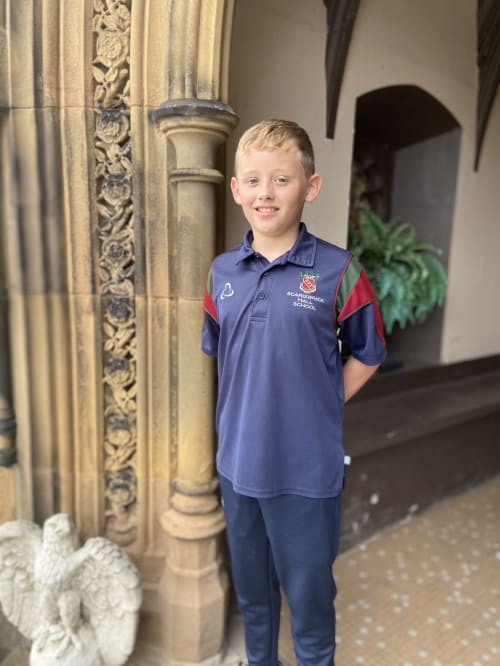
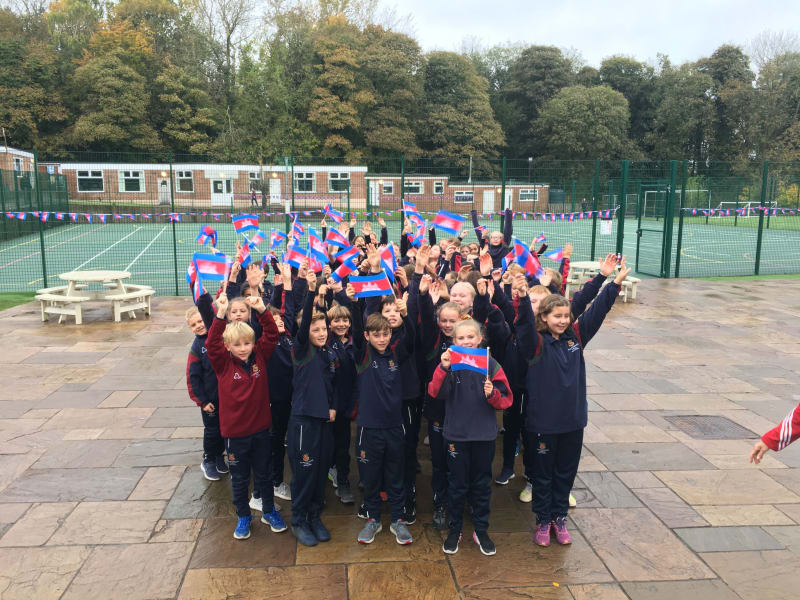
Kanchi's Story
Tim Howarth, CEO of United World Schools, said: “In the remote areas where we work there are thousands of children who have no school to attend. For children who miss out on education the future can look extremely bleak. Girls are particularly vulnerable to exploitation through child labour and early marriage.
“We’ve already reached 43,000 children with our life-changing education model, by developing schools, investing in local communities and innovating our programmes. We’re so proud of the work that Scarisbrick School is doing to help us reach many more children and give them the education they deserve.”
Donate to help children live #HappilyEverSmarter before 29th July 2021 and the UK government will double your donations. £80 could provide education for a year for one child ...and doubled, we could educate two children! To find out more and donate visit www.unitedworldschools.org
Notes to Editors:
Scarisbrick Hall School media contact:
Suzie Walmsley
[email protected] | 01704 842240
UWS media contact - for more information, spokespeople, content and imagery:
Karen Garvin
[email protected] | 07971 576917
Kanchi selection of images and first-person story *Kanchi’s name has been changed to protect her identity. (More stories and images available). Photo credit: Navesh Chitraker.
UK Aid Match and Happily Ever Smarter logos
UK Aid Match campaign - From 29 April to 29 July 2021 for every £1 you give to United World Schools the UK government will match your donation by giving another £1. All donations will help children from very remote communities access education across Asia. UK government funding will go to UWS’ programmes in Nepal to help over 8,000 out of school children in some of the most remote areas go to primary school for the very first time. Donations from the British public will be spent across all UWS’ education programmes in Nepal, Cambodia and Myanmar.
United World Schools (UWS) builds schools in some of the most remote, impoverished villages in the world and champions inclusive, innovative and sustainable education, including remote learning during the Covid-19 pandemic. Since 2008, UWS has built 250 schools and trained 1,000 local and government teachers and reached 43,000 children in Nepal, Myanmar and Cambodia with a life-changing education. UWS is a 2019 WISE Award Winner for educational innovation, and a 2020 UNESCO King Sejong Literacy Prize winner for ethnic minority literacy programmes.
Global Education Facts and Figures
Out of school figures:
- 258 million children were already out of school before the coronavirus pandemic struck (UNESCO 2019). This includes: 59 million children of primary school age, 62 million of lower secondary school age and 138 million of upper secondary age.
- 18.7 million children are out of school in Asia (UNESCO 2019).
Covid-19 impact:
- School closures amid the pandemic have compounded the already dire progress on Sustainable Development Goal 4 (SDG4) - the global commitment to guaranteeing a quality education for every child by 2030.
- 24 million children may never go back to school (UN, Oct 2020) after the pandemic, falling victim to early marriage or a lifetime of poverty. Vital progress made in access to education worldwide will be pushed back by a decade.
- UNESCO has warned that it may be six years until 2018 levels of education financing are reached again, resulting in lost learning for millions of children (UNESCO 2020).
Education benefits:
- For each additional year of schooling, an individual’s income increases by up to 10%. If all students in low income countries acquired basic reading skills, 171 million people could be lifted out of poverty. (EFA GMR 2014)
- The pandemic has shone a spotlight on the importance of global healthcare and access to health information. Education is inextricably linked to health and the benefits are lifelong. A child whose mother can read is 50% more likely to live past the age of 5 and 50% more likely to be immunised.
- For the world’s most marginalised children, school not only builds opportunities for the future, but is also a place of safety and a centre for life-protecting and and growth of social and life skills. For example UWS works to instill hygiene practices at the schools it works in.
What is the education system in Nepal?
Nepal is one of the poorest countries in the world, with an economy largely dependent on aid and tourism. As a result, government investment in education has been limited, tending only to reach communities based along main roads. However, many remote villages can’t be reached by road. This means that thousands of children from remote and marginalised communities are excluded from education. There are 101,223 children out of school in Nepal (UNESCO, 2017) with many children dropping out before they complete their primary education (retention rate 73.6% - UNESCO, 2016).
Our Happily Ever Smarter campaign will be providing education for children in the regions of Gulmi, Sankhuwasabha, Taplejung, Morang and Chitwan and Rupandehi Districts of Nepal, where it is estimated that there are more than 67,530 children of primary-school-age out of school. Across these regions, less than a third of the population completes primary education, and the vast majority of those who do are from urban areas.
United World Schools (UWS) has been working in the Sankhuwasabha, [an area affected by the Civil War in Nepal 1996-2006] and Gulmi Districts since 2016. During this time, we have supported over 35 communities to access education and have been recognised at a regional level for our successes. We also plan to start supporting communities in areas like Chitwan, where marginalized groups like the Muslims, Musahar and Tharu have been deprived of education.
Although Nepal has made progress in terms of access to education in recent years, very few of these improvements have reached remote and marginalised regions.
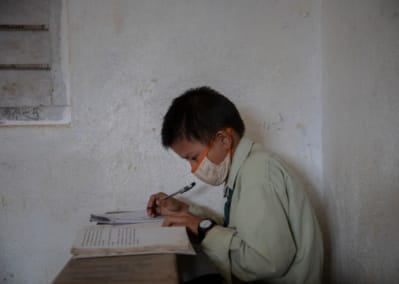
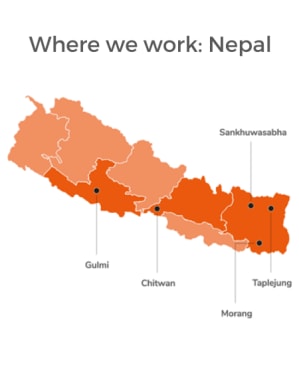
An education crisis in rural Nepal
In rural, remote areas of Nepal, as few as 10% of the population are able to read and write. Schools are often so far away that it’s dangerous for primary-school-age children to walk there, and there isn’t always an understanding of the importance of education in their communities. In poorer communities, children often work in the home or the fields to help make ends meet, which can keep them trapped in a preventable cycle of poverty and illiteracy.
"It makes me very tired cutting the grass," says 11-year-old Soneeya (pictured). "I feel happy to now see the [UWS] school being built in my village. I'll be so glad to study rather than working."
Covid-19 has exacerbated this education crisis, making it even harder to reach these children. We all know how difficult it’s been for children here in the UK to learn during the pandemic; but for children in extremely remote areas with no technology, it has been almost impossible.
Despite these challenges, our incredible teams in Nepal, Cambodia and Myanmar worked hard to reach 148,000 people with essential information about coronavirus and advice on how to prevent the spread. Our distance learning programmes reached over 40,000 children including lessons delivered via loudspeaker and radio. However, the culture of education in many areas is new and fragile. The UN estimates that 24 million children worldwide may never return to school after the pandemic, falling victim to early marriage or a lifetime of poverty.
Children from remote, ethnic minority communities are disproportionately affected - especially girls, many of whom have never had the chance to go to school. The girls who do attend school are at higher risk of dropping out by the time they reach their teens, due to the risk of child marriage and social stigma surrounding menstruation. According to data from the Nepal Demographic and Health Survey, 40% of girls in Nepal are married before they turn 18 - and this figure is likely to be higher in rural areas.
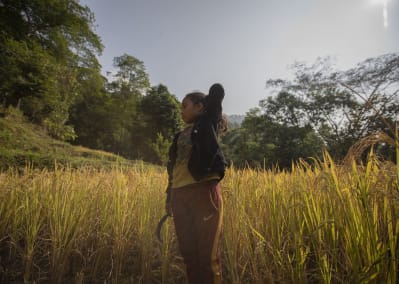
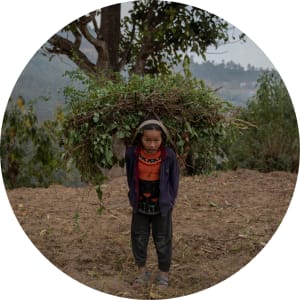
Changing the story for children in rural Nepal
At United World Schools, we’re working to transform children’s futures and entire communities in Nepal and across Asia through our life-changing education model. Through building schools and investing in local communities, we will help thousands of primary-school-age children into education.
We train local teachers, empower students and parents, provide health and sanitation support and partner with regional and national governments. We provide ongoing support until every school is self-sustaining and we are confident in the local authority’s ability to maintain it - meaning that each school will continue to provide a life-changing education for generations to come.
In just 12 years, United World Schools has transformed hundreds of communities and thousands of children’s lives. We’ve reached 43,000 children in Nepal, Myanmar and Cambodia with a life-changing education - and with your support, we can help even more children live Happily Ever Smarter.
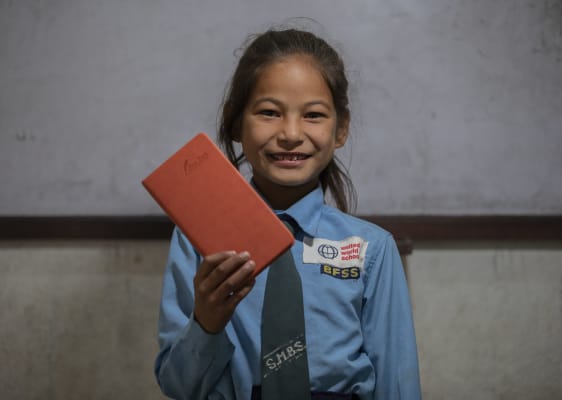
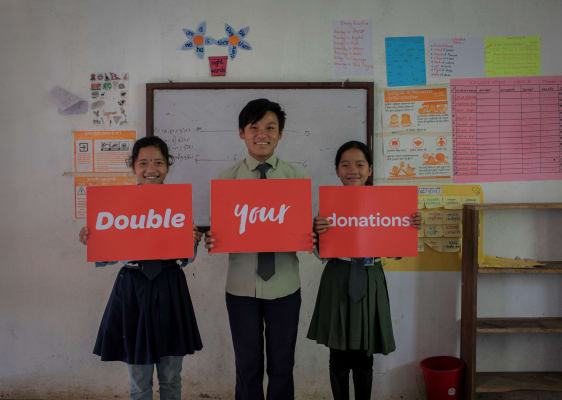
“I used to dream of going to school and now I can!”
- 11 year old Kanchi
“I learn a lot of new and interesting things everyday. My favourite subject is Maths and I feel great when I’m able to help my friends with their studies too. I don’t like to miss even a single day of school. One day I’d like to become a teacher – I want to earn a good living and give my grandmother a comfortable life.”
11 year old Kanchi (pictured), who attends UWS Helawubesi School in the Himalayan mountains of Nepal.
Between 29 April and 29 July 2021, for every £1 that was given to United World Schools by a UK donor, the UK government matched this by giving £1!
Donations will help us continue to reach thousands of underprivileged children like Kanchi with a transformative education across Asia.
Match funding from the UK government will be used to help 8,505 out-of-school children in some of the most remote areas in Nepal to go to primary school for the first time in their lives.
Together, with your donations and match funding from the UK government, we’re aiming to reach over 10,000 children with education, train and employ 375 teachers and build 70 new schools in Nepal and across Asia. With the pandemic exacerbating the education crisis and schools across Nepal closed, this is needed more than ever.
We know that the countries which are suffering most from the impacts of climate change are those with the weakest economies and least resilience. We work with communities in Cambodia, Myanmar and Nepal. Within these countries, remote and marginalised communities are at most risk of the potentially devastating effects of climate change, affecting their livelihoods and the education of young people. For the period 2000 - 2019, Myanmar was the second-most affected country in the world by extreme weather events, causing loss of life and livelihoods to many thousands of people (Germanwatch, 2020). Cambodia is consistently ranked as one of the most at-risk countries in the world with regards to climate change, as the country does not have the economic or physical infrastructure to easily protect against or recover from climate-related disaster (UNDP, 2021). Nepal is also considered one of the most at-risk countries, susceptible to severe flooding, the risk of which is being increased by deforestation (World Bank, 2021).
In the communities in which we work, people rely on the environment every day to sustain their way of life; to farm, to eat, and to build their homes. As a result, it is vital that we care for the environment in every community we work in, as well as empowering young people to find new opportunities for income, beyond subsistence farming.
The majority of communities we work with rely on subsistence farming, making them particularly vulnerable to climate change and environmental degradation. Education gives young people in these communities the chance for more employment opportunities, and better resilience to climate change.
At UWS we understand that there are three spheres of sustainability; social, economic, and environmental. Our work is upheld by each of these pillars, and to mark Earth Day we are celebrating how our projects are climate smart, responsive and adaptive to each different community we work in. There is no one size fits all approach to environmental sustainability.
Our Global Buildings Adviser Manjeet Raj Pandey oversees the design and construction of all of our schools and learning sites, to ensure that each one suits the community and cares for the environment. The UWS Environment Working Group ensures that our projects are in accordance with national and international environmental protection policies in each country and region we work in. Beyond this, we also conduct training with staff at each school, and encourage sustainable and environmentally friendly practices amongst the students, like reducing plastic usage.
As each country we work in has different environmental needs, we take a tailored approach to each community. In Myanmar, our team prefers to use pre-existing community buildings rather than building new sites to reduce the use of new building materials. High importance is also given to local resources and insights of community members before, during and after any construction processes. Using natural light and collecting rainwater is prioritised to make the most of natural energy and resources.
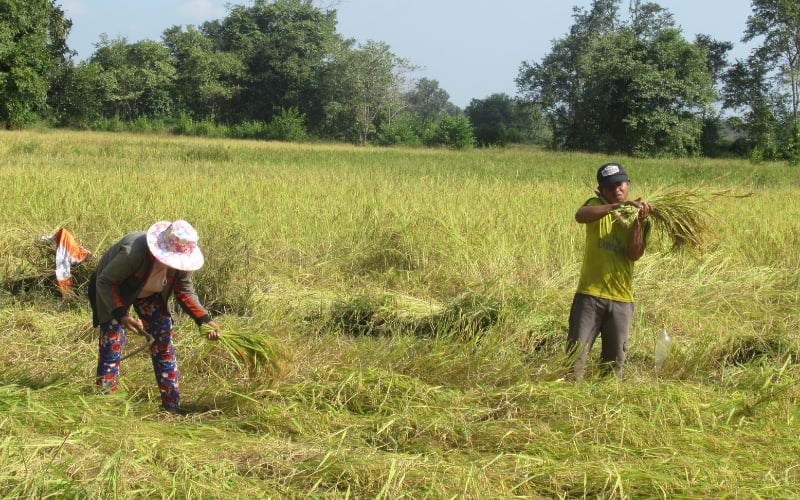
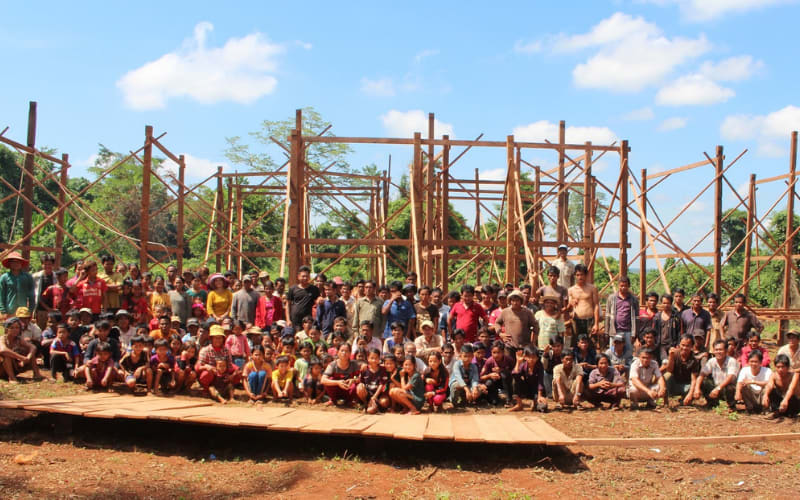
Every UWS school is built by the community, for the community, using materials and methods to suit the local weather and environment.
In Cambodia, our schools are built on elevated platforms to make them resilient to flooding and water pooling during monsoon season. We also consider the effect of wind in the design and construction of our schools. Our schools have a sustainable water supply through tube wells on the school grounds, and recycled tyres are used for play equipment.
In Nepal, our schools are built of brick to minimise deforestation, which is one of the main causes of flooding and landslides in Nepal. We are also looking into how we can maximise the use of solar power at our Nepal schools, to make them more sustainable.
The empowerment of our school communities is clear in the actions they take to protect their environment. The local teachers and School Support Groups at our schools often launch their own grassroots environmental initiatives. Juna, a Community Teacher in Kalleri, Nepal, is working to create a plastic-free school
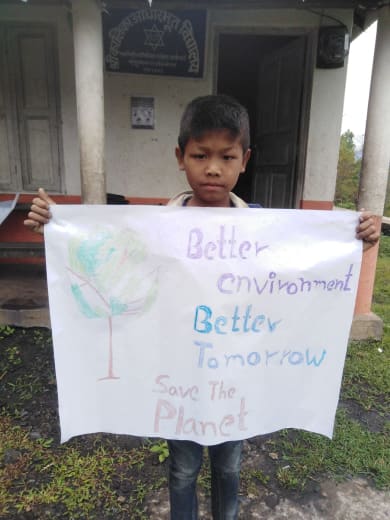
UWS Lebrang students, on the occasion of World Environment Day carried out planting in the school premises. They also put up hand made slogan posters in the school.
Perhaps most importantly, each UWS student has the chance to better understand the threats that their natural environment faces as a result of climate change. Having access to an education can help communities to become more resilient, and to have their voices heard on pressing environmental issues. It’s vital that remote and marginalised communities are part of every conversation about climate change, and especially young people in these communities.
When we started the WASH Appeal this time last year, it was to make sure that our teams, communities and students were safe. Thanks to the incredible generosity from our supporters, we were able to work at speed to make sure communities were protected from Covid-19. Every penny made a difference.
Our first goal was to upgrade all water, sanitation, and hygiene facilities in line with the World Health Organisation’s guidelines. We needed to take urgent action to make sure that all the communities we work in had good working hand-washing facilities, to help stop the spread of Covid-19. Within just a few weeks, we made 161 facilities socially distanced and water efficient, preventing water shortages even with most communities now washing their hands more frequently than pre-Covid-19. Most importantly, we made these facilities accessible for the entire community while students are out of school, so that everyone benefited. We built additional facilities in places of heavy footfall such as near places of worship, and made sure that every community had plenty of soap available to them.
‘’The UWS team has opened the school’s water and handwashing facilities for our community. We use the wash station to clean ourselves. Almost all of the community members and children have developed the habit of handwashing.’’
- Tulashi, Community teacher in Nepal
To support these improvements we set our second goal; delivering an Awareness Campaign to educate as many community members as we could about Covid-19, and help teachers and other staff members to manage the multiple risks posed by the pandemic. In many of the communities we work in, good hygiene and sanitation are a daily challenge, both because of a lack of facilities but also because of poor education.
Through training and communications we taught community members the importance of social distancing, handwashing, and other safety measures. Aware that school closures may also pose more complex child protection risks, we provided additional training for our teachers and staff members to identify and respond to these risks. Through the campaign we reached almost 150,000 community members, helping them to understand how Covid-19 spreads, and how to keep themselves safe.
Providing good quality water, sanitation and hygiene facilities is a key aspect of our mission to deliver quality, equitable, accessible education. By slowing the spread of Covid-19, schools were able to reopen faster, and begin delivering life-changing education in the most effective way. Thank you to every one of our supporters who made this possible.
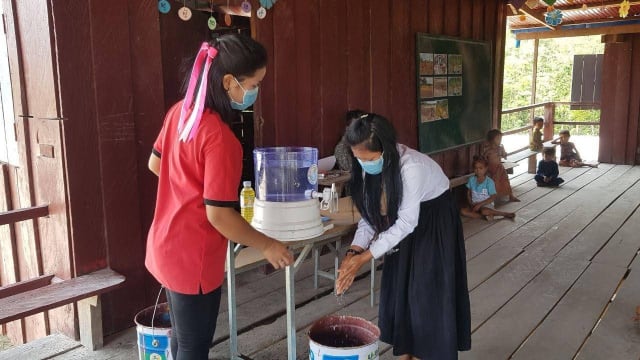
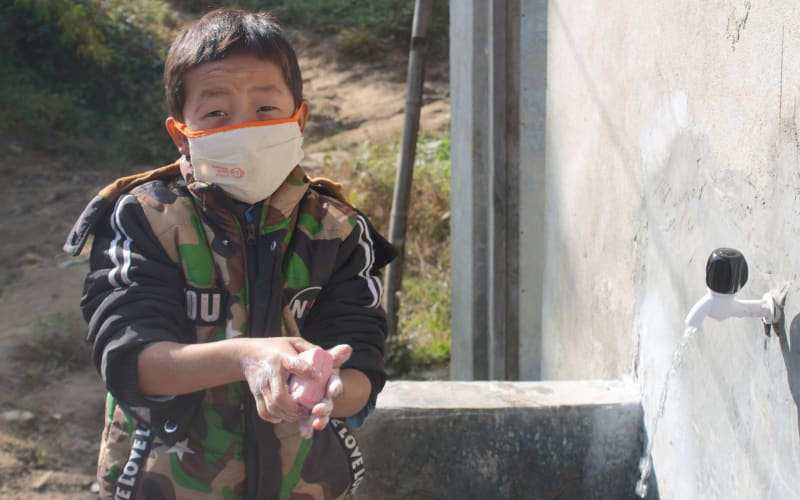
2020 has certainly been a rollercoaster, but at UWS we are so proud of all of our teams, the communities we work with, and the people we support. Together, we have shown resilience, taken opportunities to innovate, and collaborated successfully to keep children safe and learning.
Along the way we won awards, our supporters fundraised and donated, and with support and determination we reached 36,500 children with a life-changing education. Here, we look back on the highs and lows of the year unlike any other...
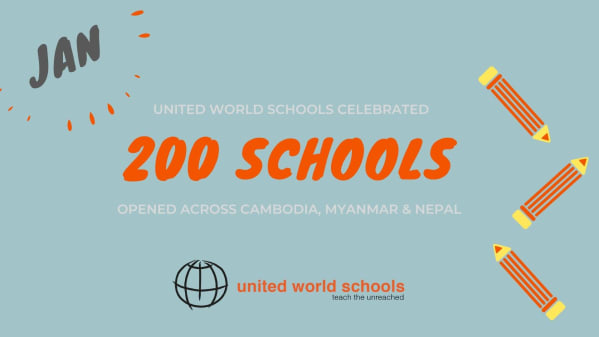
We started the year with over 200 schools open across Myanmar, Nepal and Cambodia, serving remote and marginalised communities - and by the end of 2020, we've built a total of 226 schools. This was after an award-winning year in 2019, seeing us win a World Innovation Summit for Education (WISE) award. UWS started 2020 with energy and optimism.
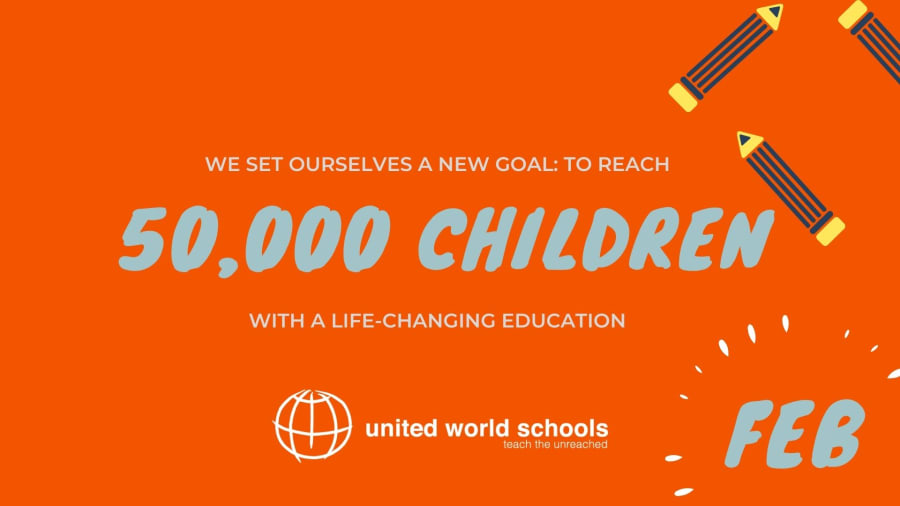
In February, our Global Programmes director Peter Campling visited our schools across Myanmar, Cambodia and Nepal, celebrating the progress of our in-country teams in working towards an important milestone - enrolling 50,000 previously out-of-school children into education.
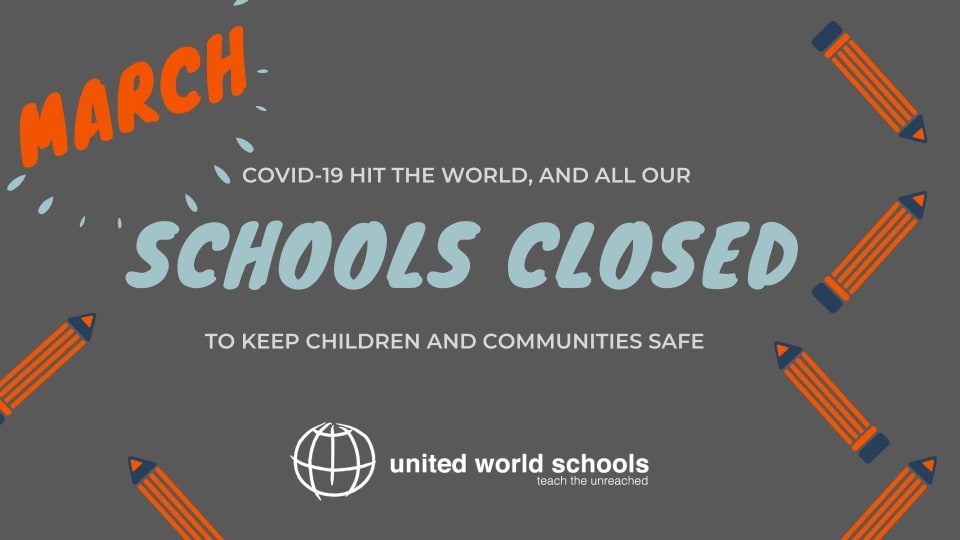
Covid-19 hit the world, and we were all faced with unprecedented challenges. All our schools were closed, and our central staff in Myanmar, Cambodia, and Nepal were in varying states of lockdown. But we were determined to use all our resources and knowledge, and those of our in-country teams, to support our communities and schools to stay safe and get through this difficult time.
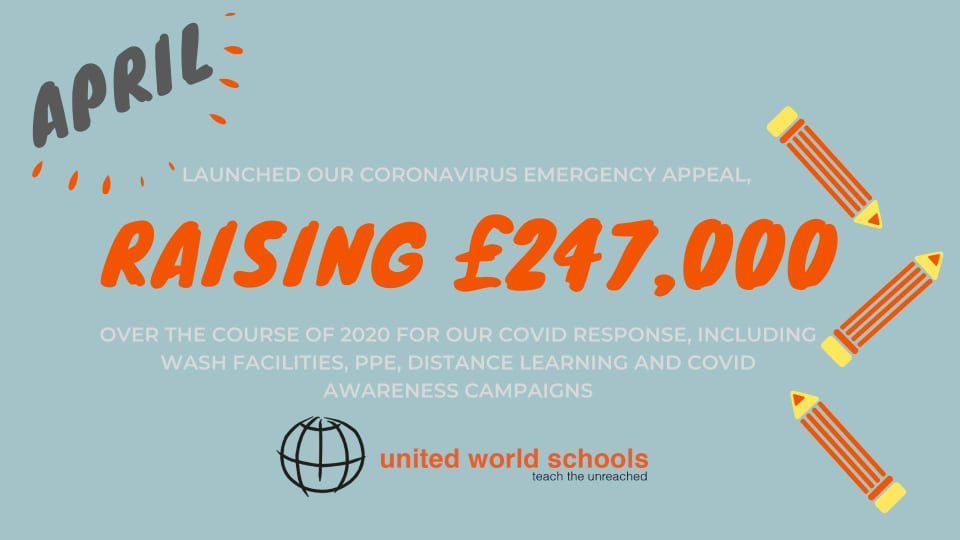
We began refocusing our operations to make sure that the communities we support could be as safe and healthy as possible. We had to make sure that anything we did wouldn’t cause any unintended harm, which can sometimes happen during times of emergency. We launched our Covid-19 Emergency Appeal, which so many of you supported.
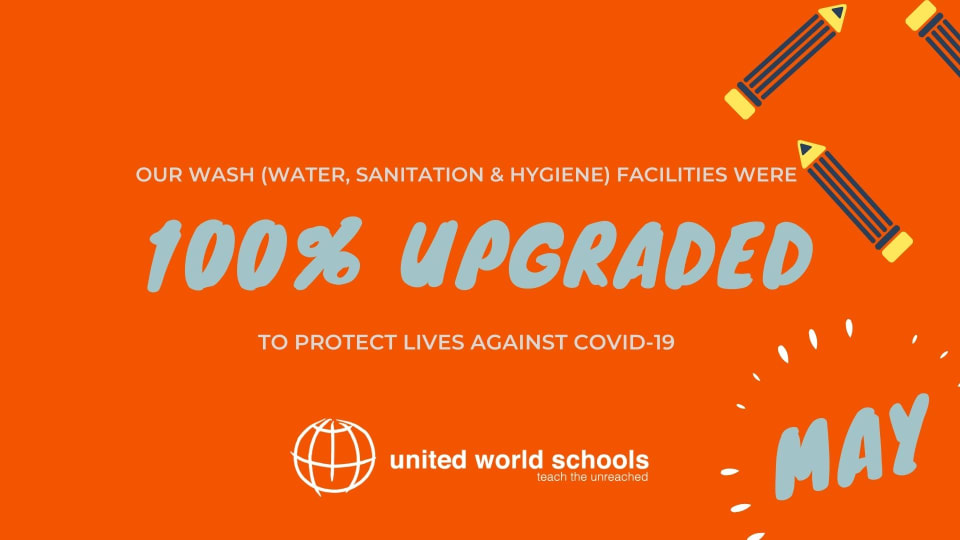
Close partnerships with all the communities we work in enabled us to implement fast and effective change to protect communities. We worked with our community teachers, our School Support Committees, and other local people with a fantastic understanding of local languages and cultures. We were able to upgrade handwashing facilities in schools in line with WHO guidelines, which could be used by the whole community even if the school was closed. We also launched an awareness campaign in all the communities we work in to provide life-saving information about how to protect against the virus.
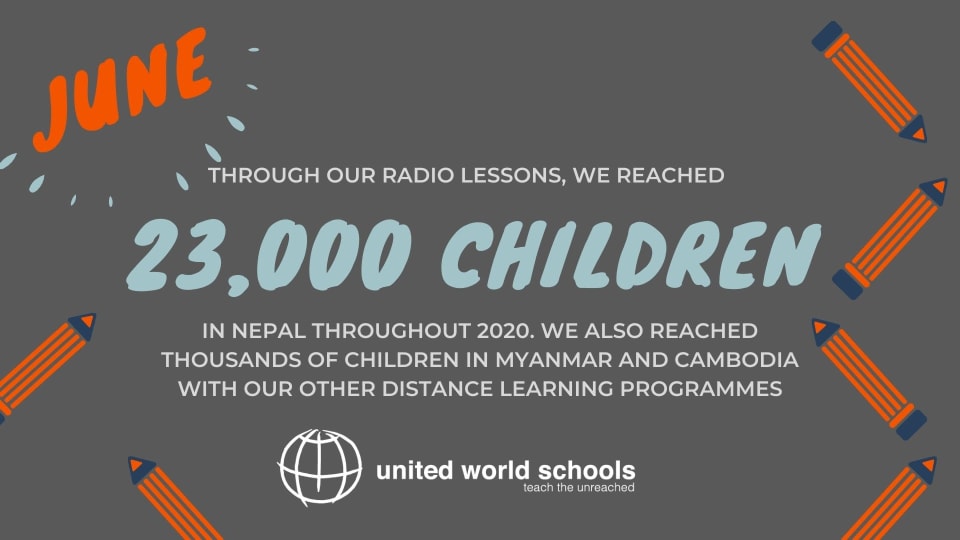
By June, we were running distance learning programmes across Myanmar, Cambodia and Nepal. Throughout 2020, we broadcasted lessons to 23,000 students in Nepal via radio, provided project-based learning to thousands of children in Myanmar and Cambodia, and made sure that as many children as possible could keep learning while their schools were closed. Our summer auction raised over £23,000 to support our Covid-19 response.
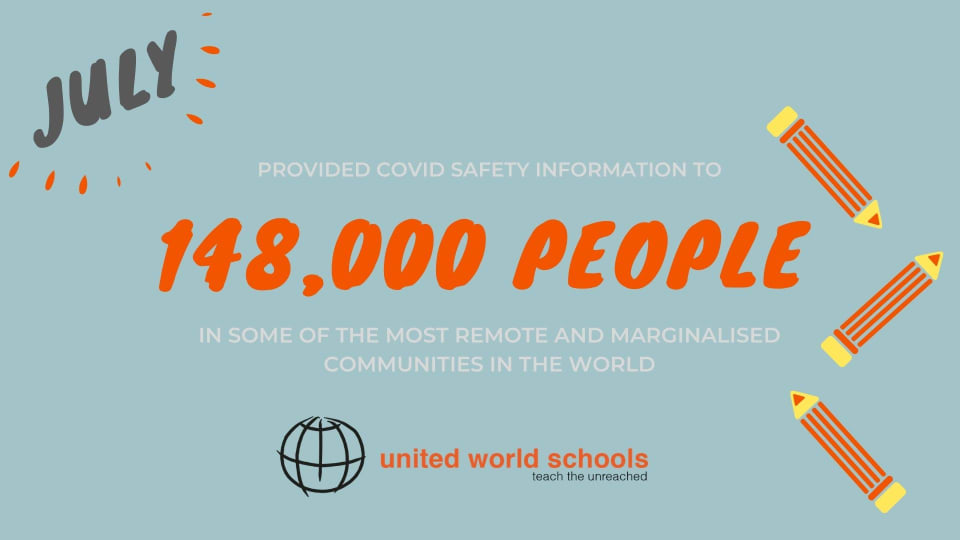
With the generous support for our Covid-19 emergency appeal, we were not only providing innovative distance learning programmes, we also opened better water and handwashing facilities in 175 remote communities, making sure that social distancing could be in place when people washed their hands and collected water. We also reached an estimated 148,000 people with life-saving information and advice about coronavirus.
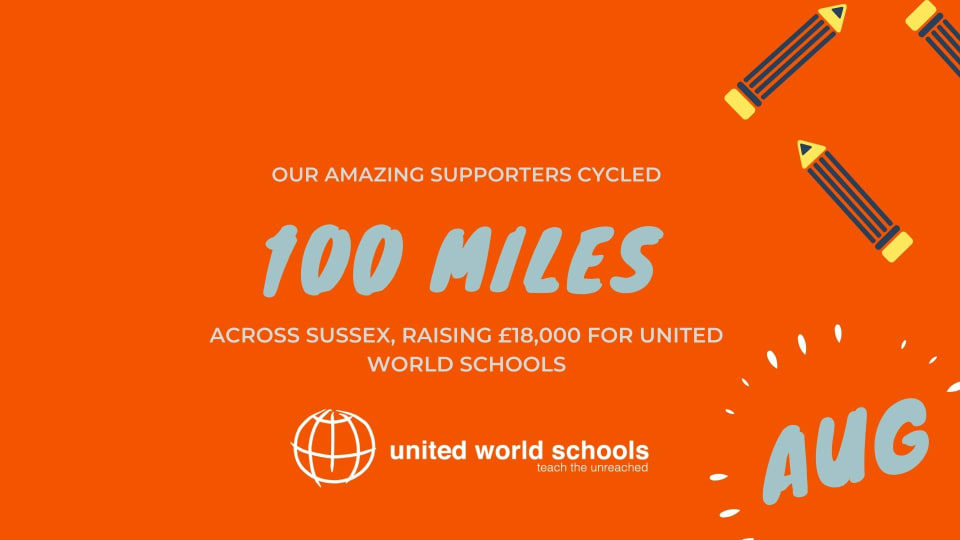
In August, we brought together UWS team members and leaders from across the education sector for our Every Child Counts webinar. We discussed the varying impacts of Covid-19 on education, and also celebrated the innovations that have been made this year to overcome barriers. This chance to innovate has helped deliver education to children even if schools have had to close. Some of our dedicated supporters in Sussex took on a 100 mile bike ride and raised £18,000 to support our work to ensure that children could access education during the pandemic.
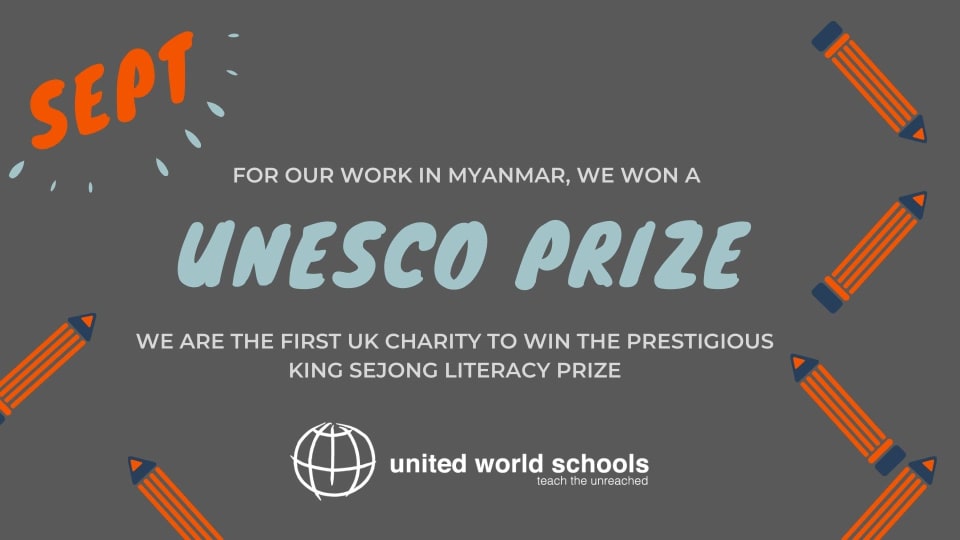
September saw us win the UNESCO King Sejong Literacy prize! Given the enormous challenges the team and the communities we work in have faced, were so pleased to receive this award for our work improving literacy rates in remote regions in Myanmar.
James Bridge, Secretary-General of the UK National Commission for UNESCO said, "United World Schools winning the UNESCO King Sejong Literacy Prize is an exceptional achievement. It is a tribute to UWS and their partners in Myanmar and especially the teachers, indigenous community and the school children themselves. The work will lead to improved educational outcomes for the children across the board and opportunities for them and their community."
Our schools also re-opened in Cambodia, with our country team working around the clock to provide PPE in schools and observe safe social distancing.
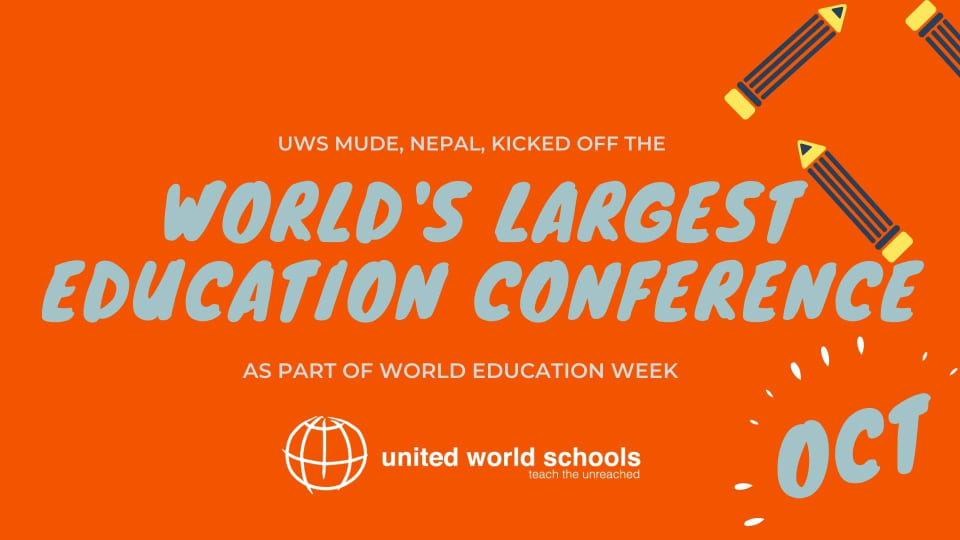
UWS Mude, one of our excellent Nepali Schools, kicked off the world’s largest education conference. UWS Mude was recognised as a leader in early years education in Nepal, and shared how they are transforming early education in rural communities. In our UK team, our CEO Tim Howarth was recognised as one of the UK’s most exciting social entrepreneurs by the Social Entrepreneur index.
Another fantastic achievement to recognise Tim’s commitment to delivering innovative, scalable education. If that wasn’t enough, we were also awarded the ‘PIEoneer of the Year’ award by the Professionals In International Education news! They said, "United World Schools are a great example of raising the bar on innovation within education, in their ambitious mission to teach the unreached."
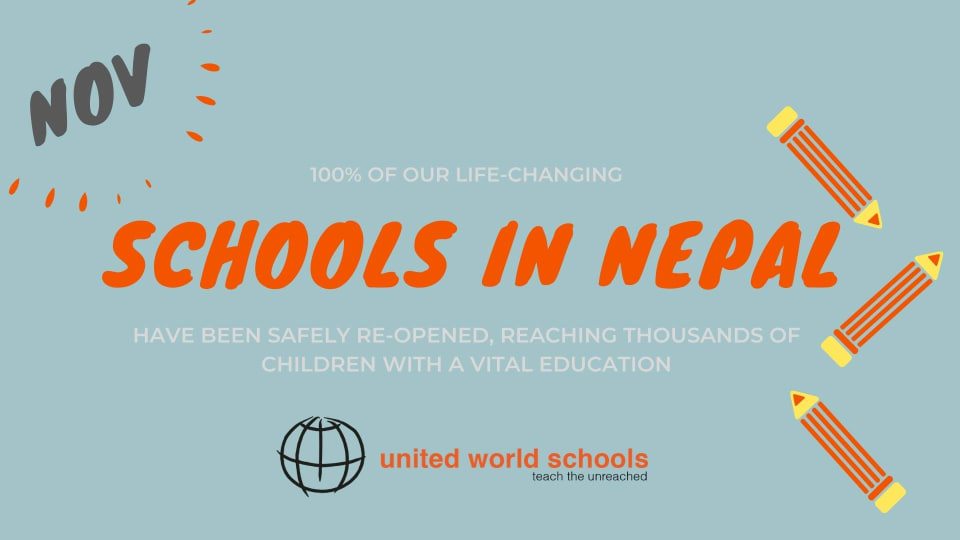
In November, we launched our ‘Back to Childhood’ appeal, focusing on bringing every child back to school, back to safety and back to their childhoods. As schools re-opened in Nepal, our teams were working hard to bring every child back to school, and away from a future of child labour or child marriage. From providing essential PPE to keep all our schools safe, to working hand-in-hand with local communities, our teams are doing everything to make sure that vulnerable children aren’t left behind as schools re-open.
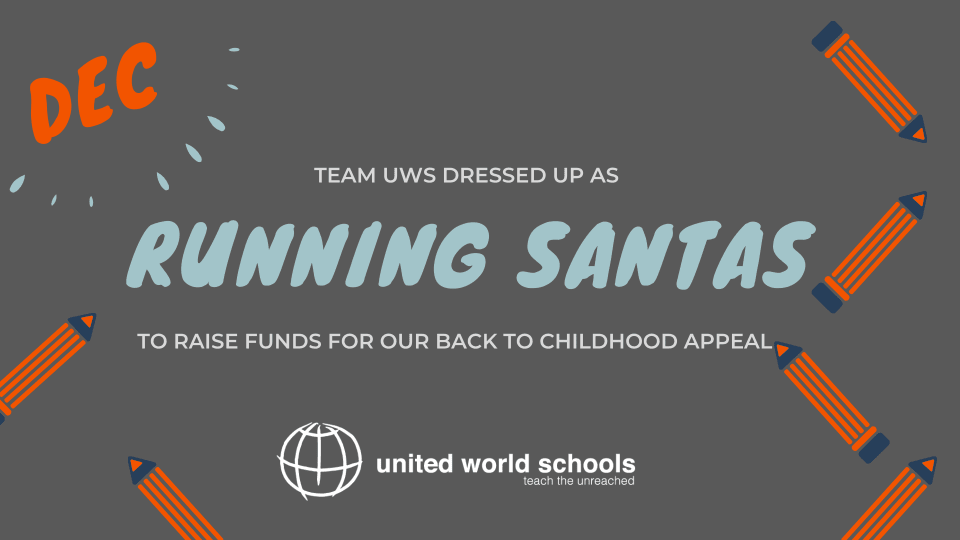
To celebrate the winter season and spread a little cheer, members of team UWS all over the world put on their santa hats, Christmas jumpers, and their all-important trainers to take part in the Santa Run and raise money for our ‘Back to Childhood’ appeal! One of our amazing teaching Fellows, Nabina, was also featured in TES for her work creating radio lessons for 23,000 children in Nepal.
In December, we also hosted an Inspiration Event with some of our biggest supporters, celebrating our progress this year and looking to the next with optimism and determination to make even more of a difference in 2021. We'd like to say a huge thank you to every person reading this, and wish you happy holidays and a wonderful new year!
After all the challenges of 2020, we’re going into the new year with stronger programmes and a renewed determination to teach the unreached. Though we're proud of the achievements we've made in 2020, the pandemic has exacerbated the education crisis.
24 million children may never go back to school after lockdown. Although schools have re-opened in Nepal, they’ve had to shut once again in Cambodia due COVID-19. In Myanmar, it’s unclear when schools will open after 9 months of closures.
What happens if children don’t go back to school?
- Child marriage will increase
A lack of education disproportionately affects women and girls, exacerbating gender inequalities. When they don’t attend school, opportunities for girls are limited and they are often forced into early marriages. It is estimated that Covid-19 has put 2.5 million more girls at risk of underage marriage, violating their rights and directly correlating to an predicted increase in gender-based violence.
- Poverty will become more widespread
Without an education, it is almost impossible to break out of poverty. Going to school changes this. For each additional year of schooling, an individual’s income increases by up to 10%. If all students in low income countries acquired basic reading skills, 171 million people could be lifted out of poverty.
- Health and wellbeing will decline
The pandemic has shone a spotlight on the importance of global healthcare and access to health information. Education is inextricably linked to health and the benefits are lifelong. A child whose mother can read is 50% more likely to live past the age of 5 and 50% more likely to be immunised.
At United World Schools, we’re determined to ensure every child returns to the classroom. Our #BackToChildhood campaign is raising funds to break the barriers that stop children going back to school.
What are we doing to get children back to education?
- Community outreach
We’ll be working closely with parents to encourage them to send their children back to school. This includes household engagement visits and running exciting back-to-school campaigns within communities to encourage them to see the transformational value of education.
- Identifying and supporting vulnerable children
We’re providing further training to our teams so they can identify children most at-risk of not returning to school. We’ll then provide direct support to these children and their families to support them to return to the classroom. This includes providing additional learning materials, flexible learning options and awareness lessons.
- Ensuring our schools are Covid-secure
We’re providing PPE to keep students and teachers safe. We’re also bringing in more equipment like desks to ensure social distancing is possible, and providing additional learning resources to avoid potential cross-contamination of shared resources. We’re keeping our handwashing facilities open and monitoring them for safety.
When a child drops out of school, the alternatives can be dangerous. But for every child we get back to school, they can get back to learning, playing and building the future they want for themselves.
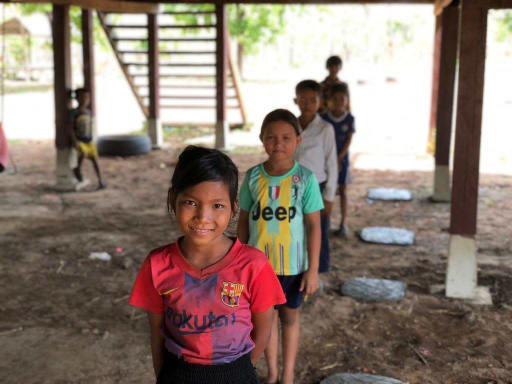
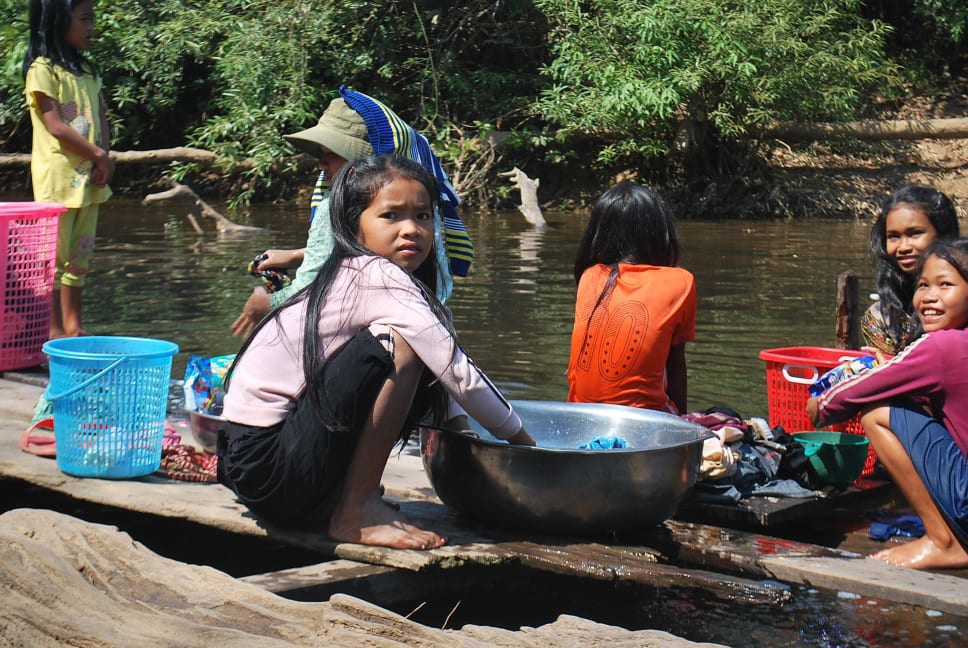

WHY ARE GIRLS GETTING MARRIED SO YOUNG?
Although child marriage is a complex issue with no single cause, there are some common driving factors...
Gender inequality
The low value placed on girls in many cultures limits their educational and employment opportunities. Social norms that prioritise boys’ interests over girls' can mean parents do not invest in their daughters’ health and education, seeing child marriage as the only alternative.
Poverty
For poor families with many children, marrying their daughter off early can mean one less mouth to feed, clothe and educate. Combined with the potential financial benefit from 'bride price' traditions, families and sometimes girls themselves believe that marriage will be a solution to secure their future.
WHAT ARE THE IMPACTS?
Child marriage is a fundamental violation of human rights.
It disrupts girls’ rights to health and education, leading to early pregnancy and social isolation.
Child brides are neither physically nor emotionally ready to become wives and mothers.
They face higher risks of experiencing dangerous complications in pregnancy and childbirth, contracting HIV/ AIDS and suffering domestic violence.
Girls, women and their families can be trapped in a cycle of poverty.
With limited access to education and economic opportunities, girls' income-earning potential is reduced, affecting their socio-economic status for generations to come. This has a wider impact on society, with research suggesting that governments could save up to $17 billion a year by ending child marriage.
EDUCATION IS ONE OF THE MOST POWERFUL TOOLS TO HELP GIRLS AVOID CHILD MARRIAGE.
The education a girl receives is the strongest indicator of the age she will marry. Evidence shows that girls who attend secondary school are three times less likely to be child brides. Educating girls provides them with the skills, knowledge and confidence to make informed decisions about if, when and who they marry.
Girls’ education benefits everyone.
A lost opportunity for education is not only harmful for girls, but has far-reaching consequences for their children and wider communities. The economic impact of child marriage was shown recently in a 2017 report by the World Bank: in countries where child marriage rates are high, girls' educational attainment is low, which in turn leads to reduced lifetime earnings and lower GDP. When girls have access to safe, quality education, the benefits are widely felt.
“Girls are one of the most powerful forces for change in the world: When their rights are recognized, their needs are met, and their voices are heard, they drive positive change in their families, their communities, and the world.”
- Kathy Calvin, United Nations Foundation President & CEO
WE’RE WORKING TO HELP END CHILD MARRIAGE THROUGH EDUCATION.
With approximately 1 in 2 girls married before the age of 18, South Asia has the highest prevalence of child marriage in the world. At United World Schools, we’re trying to change this by working every day to get more girls into our schools.
We are committed to tackling the gender gap in education. We only work with communities who commit to sending both girls and boys to school. Once a school is open, we monitor gender ratios to make sure female students are attending. If they aren’t, we work with communities to help them send their daughters to school.
Our dormitory programmes in Cambodia allow girls to stay near government schools to continue into secondary education. We also provide girls with sanitary towels and health education, to minimise other barriers they may face. Targeting the specific needs of girls encourages them to attend our schools. When girls are in school they are less likely to marry early, improving their health, education and future opportunities for themselves and their communities.
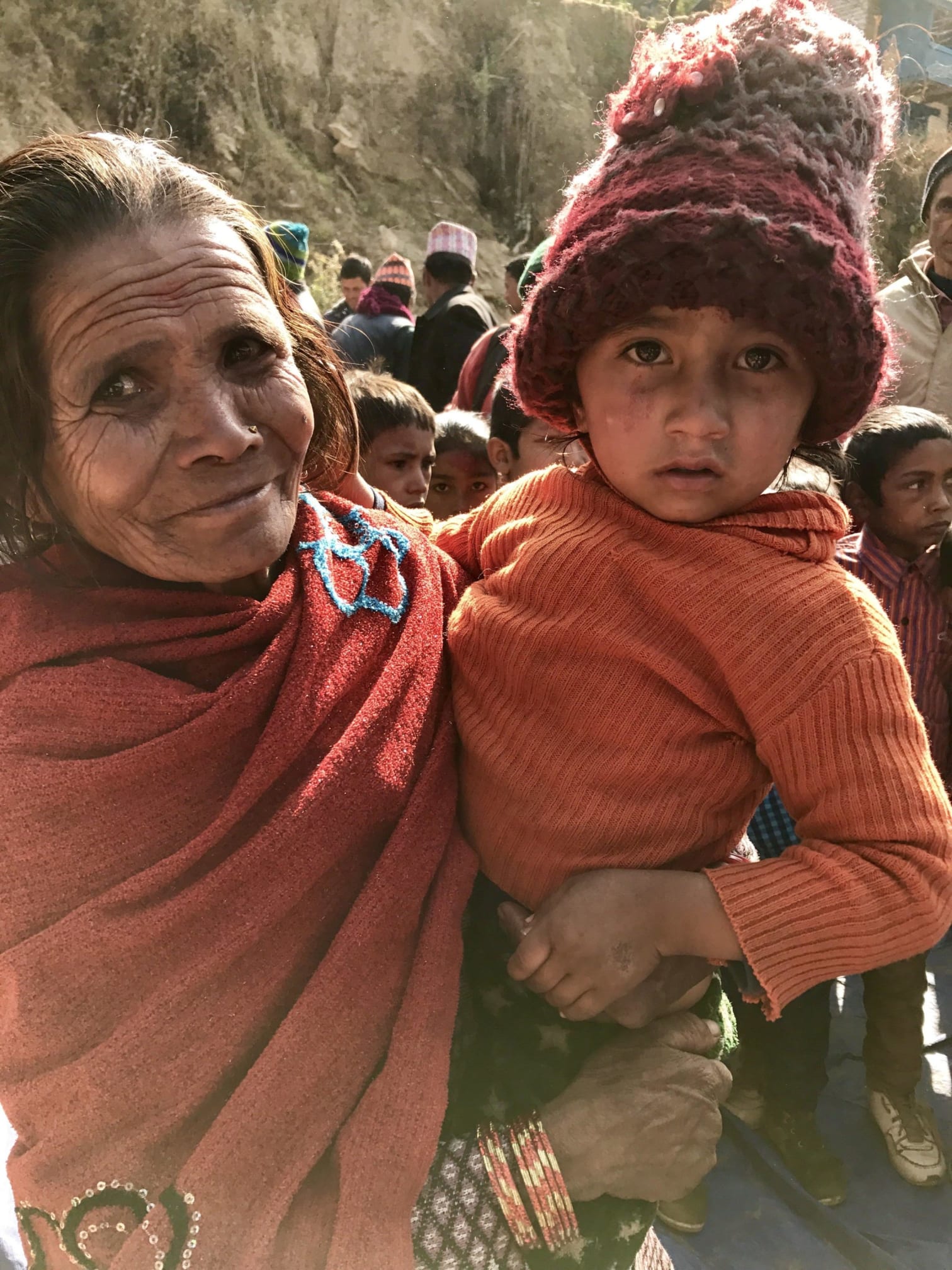

Multilingual countries across the globe face difficult decisions about which language to teach in schools. The more languages spoken within a country, the more complex the challenge to provide free education for all. This means indigenous ethnic minority groups often disproportionately miss out on education due to the language factor - there simply isn’t the option to attend school and receive an education in a language they understand.
The communities we work with in South Asia make up some of the most linguistically diverse regions in the world. The remote communities with whom we work in Cambodia, Nepal and Myanmar are mostly made up of ethnic minority groups whose first languages are not the national language. Myanmar alone is home to over 100 indigenous ethnic groups, all of whom have their own dialects.
We believe that education is a right for everyone, and we are working towards achieving Sustainable Development Goal 4 to ensure inclusive and quality education for all. This is why we train teachers from the communities with whom we work, who are able to teach children in a language they understand.
It is estimated that 40% of the world’s population do not have access to education in a language that they speak or understand.
The challenge of providing education in many languages means that even highly multilingual countries often only teach in the “national language.” When indigenous language speakers are taught in a language they do not understand, they understandably struggle. These children are placed at a disadvantage compared to other children who speak the national language as their first language. By employing community teachers in our schools who speak the same languages as the children, we help our students learn the national language whilst also protecting indigenous languages and cultures.
It is for this work promoting mother-tongue education, particularly in remote regions of Myanmar, that we recently won the prestigious UNESCO King Sejong Literacy Prize. Matthew Lodge, UK Ambassador to UNESCO, said:
"This prize is a fitting recognition for their community project in a remote part of Myanmar".
Matthew Lodge
“United World Schools have been undertaking this project in close cooperation with the local government, in order to provide the tools so that local children are able to receive their basic education in their native language. This project opens up new opportunities for children, and is an excellent example of how dedication, partnership and commitment can help in the battle against illiteracy and in the protection of indigenous languages, traditions and culture.”
Of the world’s 7,000 or so languages (the exact number is highly contested!) 2,680 are considered to be in danger. This is not just a matter of protecting indigenous languages and cultures, but also a question of human rights. Every child deserves an education, and we are dedicated to protecting indigenous languages and promoting an education that is multilingual – after all, there are many advantages to being able to converse in several languages – from greater cultural understanding to improved job prospects.
Donate today to United World Schools and help us ensure an inclusive education for children across Cambodia, Myanmar and Nepal. With your help, we can break down the language barrier, protect indigenous cultures and provide a life-changing education.
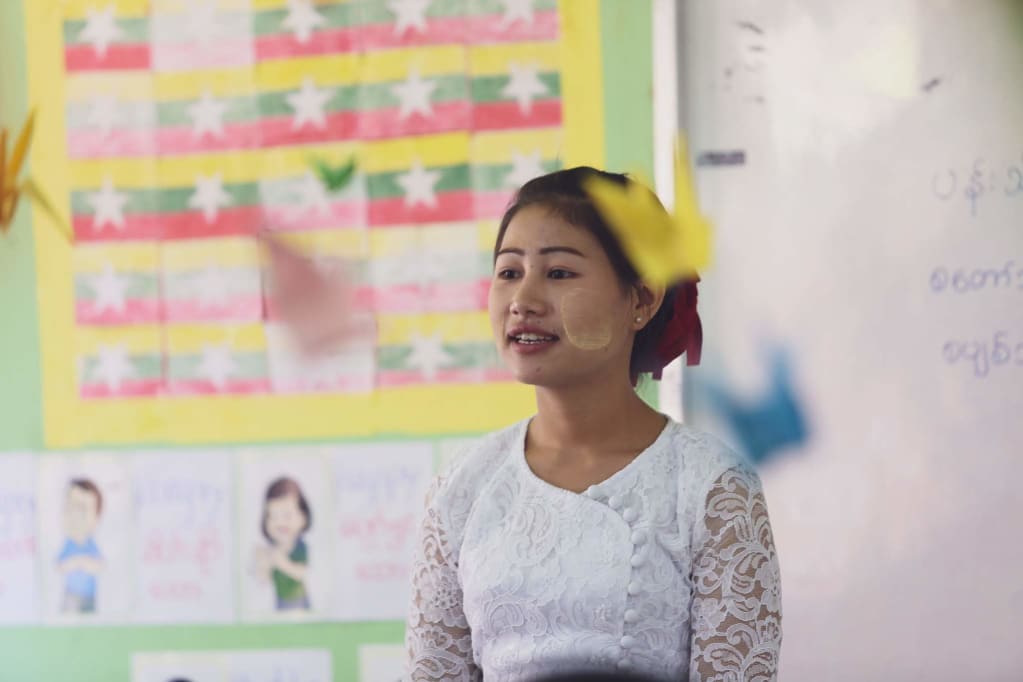

In Nepal, we know fewer than half of households have access to the internet in the communities we serve. We had to innovate fast to ensure that covid-19 would not widen already existing inequity.
We turned to a medium many might consider old-fashioned: radio. Over 85% of households within the communities we work with have a radio. So we began teaching a daily lesson over a handful of local radio stations, with prompts for further homework.
Within weeks, 10,000 children were listening each day and more radio stations wanted to broadcast our work - we now work in collaboration with 10 local FM stations. An innovative idea turned into our major programmatic response to this unprecedented crisis.
In June 2020, we conducted a beneficiary survey to fully understand the impact of this programme.
WHAT WERE THE RESULTS?
In interviews with over 600 households in June, we learnt:
- Most children (about ¾) found the radio programme engaging and understood the content.
- Some younger children were struggling with the daily programme, so we moved to broadcast grade-specific lessons: 8 lessons a day with 30 minutes for each grade.
- Rather than broadcast during daytime to replicate school hours, we should broadcast in the morning and evening around parent's working hours.
Radio lessons are laying the foundations for a successful school reopening. They mitigate learning loss, and sustain a routine of education in communities where the culture of learning is new and fragile.
Radio also complements our other strategies, with takeaway education programmes reaching the minority of children who do not have access to radio. We have a recovery plan in place to prevent drop out when schools reopen. Our Every Child Counts campaign makes our intent clear: our goal is for every child to return to school without exception.
The challenges ahead are grave. Nepal has been badly hit by covid-19. Many families, including some in the communities we serve, depend on income from work overseas that disappeared overnight and might never come back. Starvation is rising, suicide rates have never been higher and heavy monsoon rains are displacing thousands.
We must not let this crisis reduce our investment in education - in fact, it must spur us to redouble our commitment. Covid-19 has taken much; we cannot let it take our children’s futures too. Education must continue, now more than ever.
As of 10th July 2020, thanks to your support we have been able to:
Coronavirus has reached all three countries we operate in, with cases particularly growing across Nepal. It is crucial that we continue to prepare for a widespread outbreak in the regions that we work in and ensure children do not miss out on an education in the meantime.
WATER AND SANITATION
Thanks to the generous donations towards our COVID-19 emergency appeal, we have been able to open handwashing facilities in 80% of the communities we work with. Currently our teams in Nepal and Myanmar are working to complete the remaining upgrades before the monsoon starts.
VIRUS AWARENESS
Our virus awareness campaign has been ongoing since May and we believe we have now reached 150,000 people with key messages. We have now entered Phase II of the campaign, which engages community leaders to support them to develop their preparedness for a COVID-19 outbreak in their community.
In Myanmar and Cambodia, our Education Officers have been training the community leaders in COVID-19 preparedness and passing on information sheet, providing leaders with a response toolkit. We then encourage communities to form a management structure, assigning roles to individuals for the different elements of virus management. In Nepal, support is given over the phone to complement and support government coordination efforts.
Topics covered by the training materials include how to quarantine returning community members; processes for contact tracing; complex topics such as ‘direct contact’ on touched surfaces; and procedures for reporting positive cases to the government and referring into medical treatment.
In Nepal, where outbreaks have been more common, the team have been working with leaders since April. In Cambodia, every community has now been trained also. We are beginning to roll out the programme in Myanmar, where the virus is less prominent.
EDUCATION
We have now developed an education continuation programme in each country to supplement lessons whilst schools are shut. The programme looks different in each country:
Nepal
Our daily radio broadcast has been ongoing since May. Owing to its success, this has been increased from 45 minutes daily to 2 hours daily. UWS Fellows design and record the lessons. When lockdown allows, a take away programme will begin and Community Teachers have already mapped where each UWS student lives to this end.
Myanmar
Teachers are conducting classes in small groups of a maximum of 5 students (in line with government recommendations), plus additional homework. This is now running in 59 out of 66 communities, reaching over 2,000 students.
Cambodia
Community teachers are going house to house (maintaining social distancing) and distributing supplementary work. This is reaching approximately 50% of our students so far.
With schools set to remain closed for several more months, it is vital that we continue these learning programmes and reach every child within our partner communities. Not only will this support their learning during closures, it means they are more likely to return to school when they are able to open.
